Poetic Vandalism
The Poetic Vandalism series, created by poet and performer Beatriz Provasi, channels the anarchist black bloc vibe from the June 2013 demonstrations in Brazil into her performances.
This series includes vandal poetry, spoken word, performance, video, graffiti, stencil, photography, book launch, indecent exposure, and civil disobedience.

The creation and launch of her poetry book, As Guerras nos Porta-retratos (The Wars in the Picture Frames) (2014), are significant milestones in this process, through which Provasi develops the concept of masking the author.
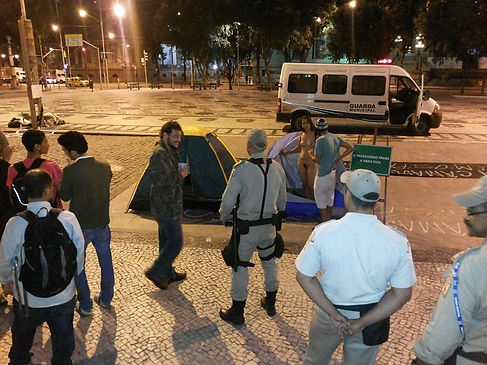

Provasi's poetic vandalism starts with poems protesting police violence and the criminalization of black bloc tactics, satirizing the melodrama the mass media creates around acts of vandalism. She soon begins performing her poems at spoken word events, wearing a black shirt tied over her face. In parallel, she whips out a spray can and starts tagging the city.
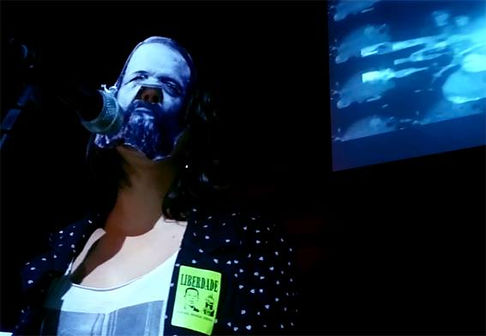
Provasi's research also culminated in her PhD thesis, "Olha Eu Aqui de Novo!" A Tomada das Ruas em 2013 e Sua Poesia Inesgotável ("Look at Me Here Again!" The Taking of the Streets in 2013 and Its Inexhaustible Poetry) (PhD in Literature, Culture, and Contemporaneity, PUC-Rio, 2018). This thesis was published by Nômade, a Brazilian publisher, both as an e-book (2023) and a printed book (2024).
All Works in the Poetic Vandalism Series
Who Puts an End to Your Colorful Style? (BR, 2016)
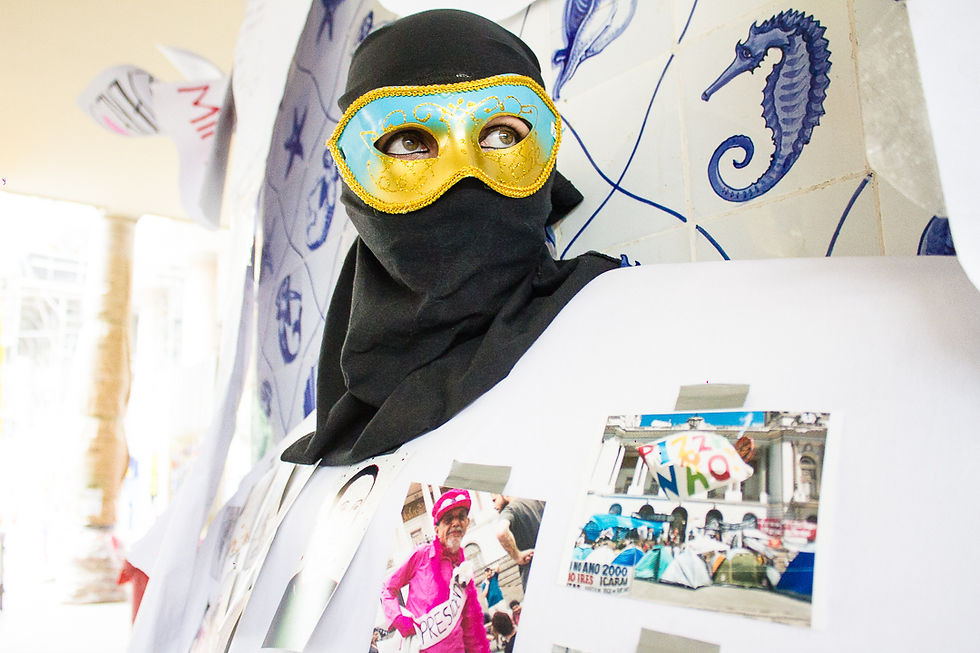
By performer Beatriz Provasi; Photo: Rebeca Belchior

By performer Beatriz Provasi; Photo: Rebeca Belchior

By performer Beatriz Provasi; Photo: Rebeca Belchior

By performer Beatriz Provasi; Photo: Rebeca Belchior
Solo Performance
Collaboration: Brenda Lua
Photos: Rachel Dias and Rebeca Belchior
Filming: Ana Karenina Riehl and Rachel Dias
Event: Cadernos do Corpo Exhibition at Centro Cultural da Justiça Federal, Ocupa MinC RJ at Palácio Capanema, and Cinelândia Square
Rio de Janeiro, Brazil
In the performance Who Puts an End to Your Colorful Style? (2016), performer Beatriz Provasi wears a white tunic adorned with various photographs from the 2013 and 2014 demonstrations in Brazil, creating a colorful and multifaceted mural on her body. This plurality is also expressed on her face, covered by both a black bloc-style shirt and a carnival mask with colors and glitter.
The performance takes place during a period of intense political polarization in Brazil, which has painted the streets with single colors: green and yellow for supporters of the coup against President Dilma Rousseff, and red for supporters of the Workers' Party and the president.
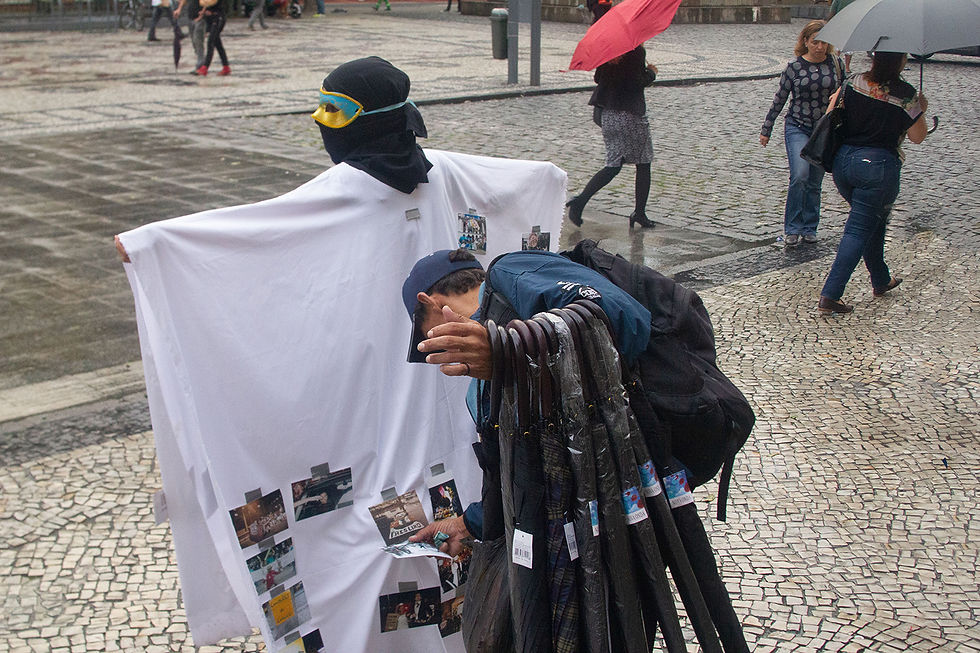
By performer Beatriz Provasi; Photo: Rachel Dias
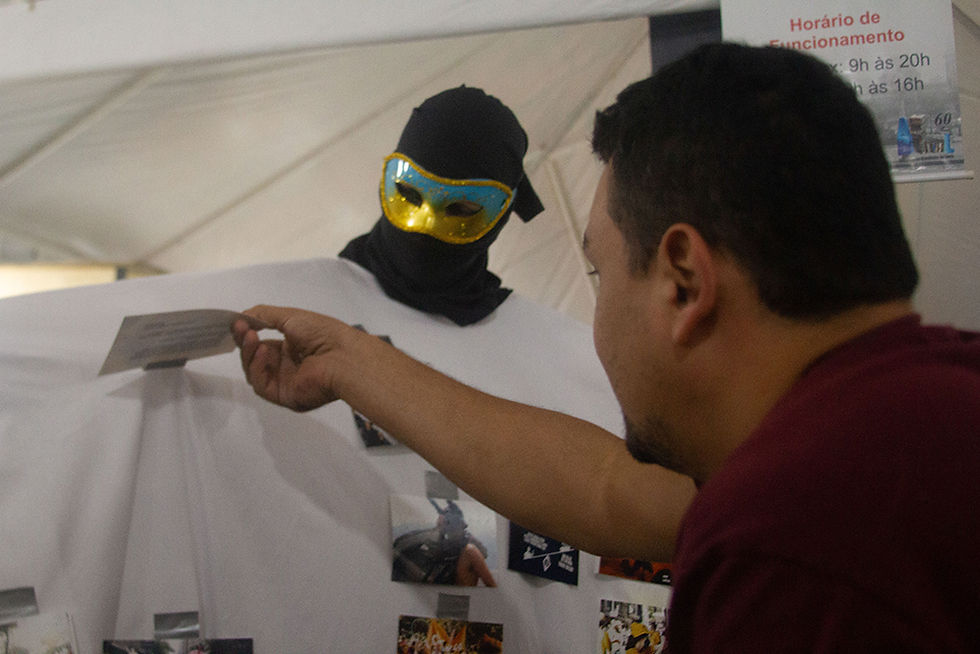
By performer Beatriz Provasi; Photo: Rachel Dias
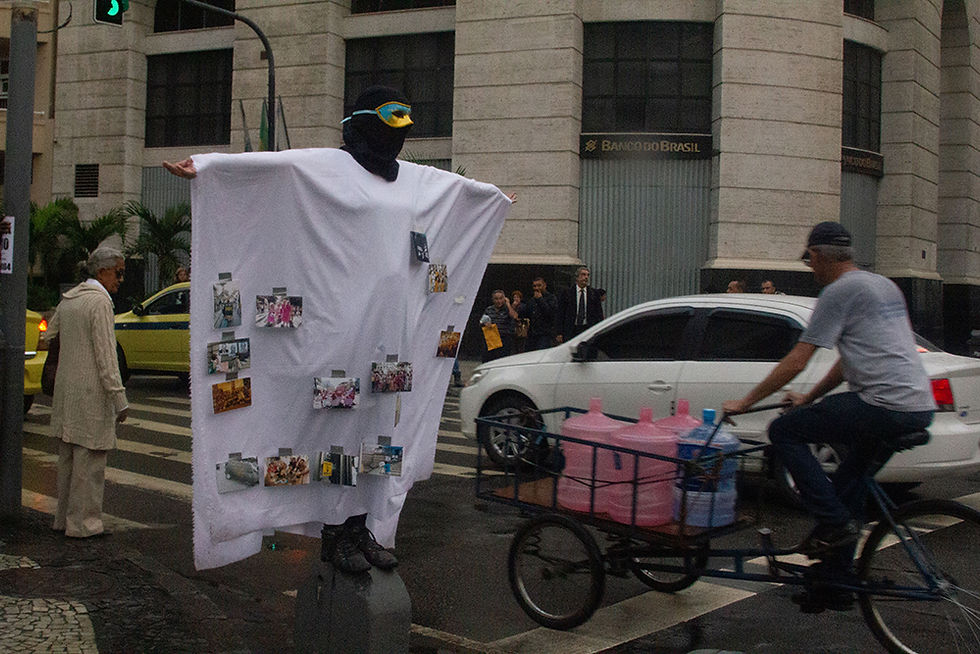
By performer Beatriz Provasi; Photo: Rachel Dias

By performer Beatriz Provasi; Photo: Rachel Dias

By performer Beatriz Provasi; Photo: Rachel Dias
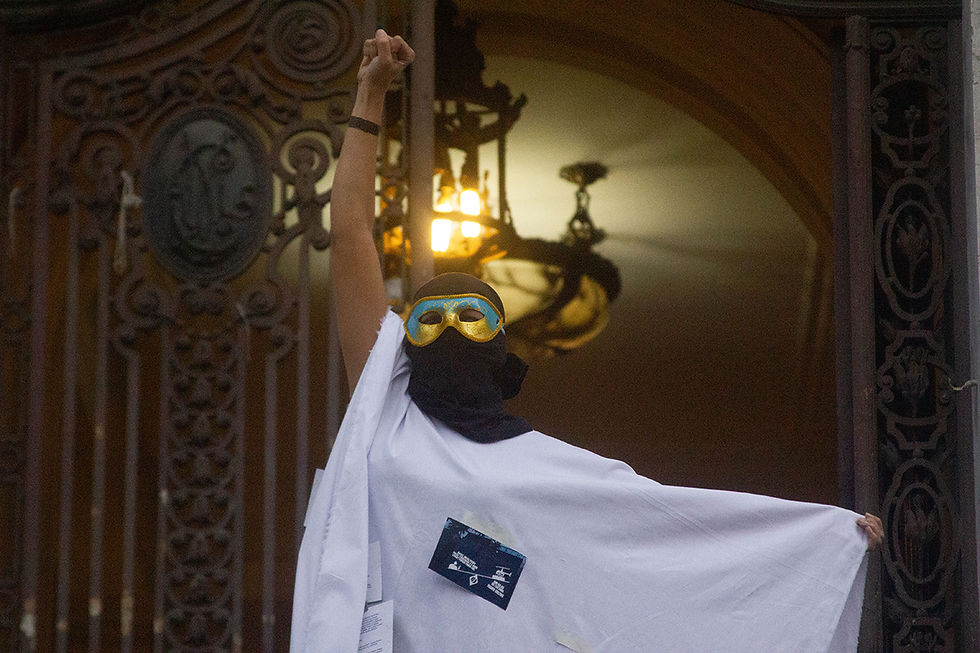
By performer Beatriz Provasi; Photo: Rachel Dias

By performer Beatriz Provasi; Photo: Rachel Dias
Leaving Palácio Capanema, where she participates in the cultural workers' occupation against the coup, Provasi parades through the streets, offering photographs to passersby.
Upon reaching Cinelândia Square, her collaborator Brenda Lua removes the remaining photos from her tunic and takes off the masks from her face. Using green and yellow ribbons, Lua gags and blindfolds Provasi. She then writes “TEMER” on Provasi’s tunic, referencing Michel Temer, the vice president who assumed the presidency during the interim government, and also playing on the Portuguese word "temer", which means "to fear".
At the end, Provasi frees herself from the gag and blindfold, removes the tunic, writes “JAMAIS" (NEVER) below "TEMER" and puts the tunic back on before returning to the occupation.

By performer Beatriz Provasi; Photo: Rachel Dias

By performer Beatriz Provasi; Photo: Rachel Dias

By performer Beatriz Provasi; Photo: Rachel Dias

By performer Beatriz Provasi; Photo: Rachel Dias
O CU PA Globo (BR, 2016)
Collective Performance
Headquarters of the Rede Globo Journalism Department
Rio de Janeiro, Brazil
The title O CU PA Globo is a wordplay that refers both to the occupy movement ("ocupa" in Portuguese) and the act of showing one's ass to ("o cu para") Globo.
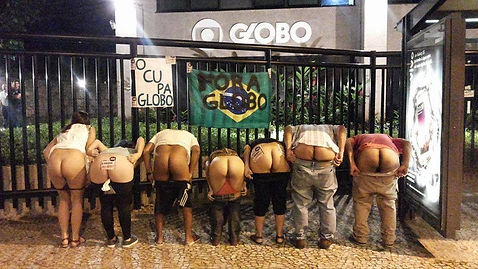

The performance O CU PA Globo (2016) is essentially a collective mooning in front of the journalism department headquarters of Rede Globo, the largest media corporation in Brazil, protesting its editorial stance in explicit support of the coup against President Dilma Rousseff.
The performance was executed twice, and by the third attempt, police were stationed at Globo's entrance.
Launch of the Book The Wars in the Picture Frames (BR, 2014)
Solo Performance
Filming: Raísa Inocêncio
Event: Symposium Urban Revolts: Politics and Poetics at the Hélio Oiticica Municipal Art Center - Rio de Janeiro, Brazil
In the performance Launch of the Book The Wars in the Picture Frames (2014), poet and performer Beatriz Provasi literally launches her books as if they were Molotov cocktails.
The performer appears nude, with a shirt tied around her face in the style of a black bloc protester and a few words written on her body. In the background, selected images from the 2013 and 2014 demonstrations in Brazil are projected. Books are scattered on the floor. The performer picks up a book, reads one of her vandal poems, and launches it against the projected images on the wall. She repeats this action until all the books have been launched.
The Amazing World of the Media (BR, 2014)
Video Collage
By Beatriz Provasi and Flávia Cortez
Collaboration: Madiano Marchetti
Rio de Janeiro, Brazil
The Amazing World of the Media (2014) is a video collage where creators Beatriz Provasi and Flávia Cortez narrate real newspaper headlines about the 2013 and 2014 protests in Brazil that stand out for their surreal nature, such as "Batman is Arrested by Police" and "Police Discover Tinkerbell Celebrated Brazil’s Defeat in the World Cup". Using these headlines, they create an audiovisual collage with various materials, employing irony and humor.
Poetic Vandalism (BR, 2014)
Collective Performance
By Beatriz Provasi and Flávia Cortez
Filming: Bruno Borja, Justo D'Ávila, and Franco Chiariello
Events: Jardim Suspenso na Babilônia in Morro da Babilônia, CEP 20.000 - Centro de Experimentação Poética (Poetic Experimentation Center) at Espaço Cultural Sérgio Porto, Book Launch of As Guerras nos Porta-retratos (The Wars in the Picture Frames) at Hussardos Clube Literário, and Pizzarau at La Carmelita
Rio de Janeiro and São Paulo, Brazil
In the performance Poetic Vandalism (2014), poets and performers Beatriz Provasi and Flávia Cortez present their poems inspired by the 2013 and 2014 Brazilian demonstrations, wearing black shirts tied over their faces in a style reminiscent of black bloc activists.
There are slight variations between the presentations, such as white and blue smoke flares used during the first event in Morro da Babilônia and the screening of the video collage The Amazing World of the Media (2014) during the final performance at La Carmelita.
This performance was also shown on stage at CEP 20.000 - Centro de Experimentação Poética (Poetic Experimentation Center) at Espaço Cultural Sérgio Porto, and at the book launch of As Guerras nos Porta-retratos (The Wars in the Picture Frames) (2014) in São Paulo, at Hussardos Clube Literário.
Bakunin Wanted (BR, 2014)
Solo Performance
Events: Book launch of As Guerras nos Porta-retratos (The Wars in the Picture Frames) (2014) at Estúdio Hanói, Corujão da Poesia at Livraria Saraiva in Leblon, and Blues na Lage at Barzin
Rio de Janeiro, Brazil
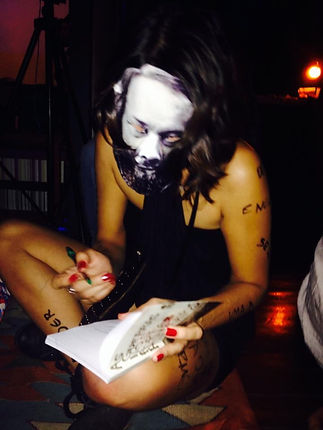
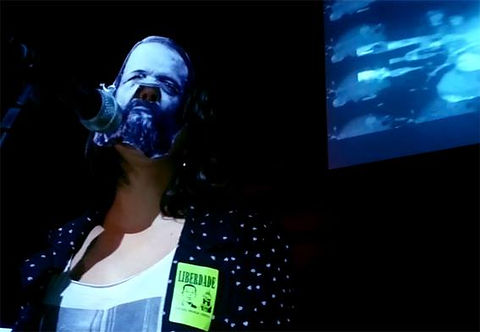
The performance Bakunin Wanted (2014) involves the use of a Bakunin mask. The 19th-century anarchist philosopher had been included by the police in a case against activists, suspected of leading acts of vandalism in 21st-century Rio de Janeiro. The same case led to the imprisonment of dozens of activists.
Poet and performer Beatriz Provasi adopts the identity of Bakunin during the launch of her poetry book As Guerras nos Porta-retratos (The Wars in the Picture Frames) (2014), signing book dedications with the philosopher's name and wearing his mask.
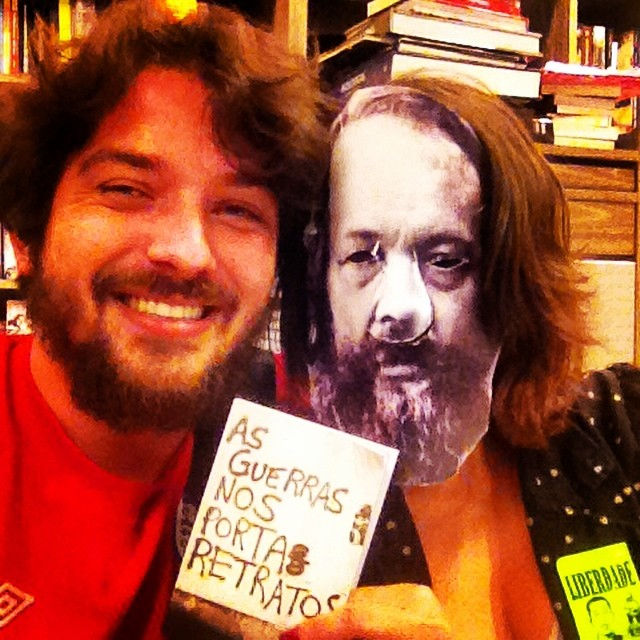
By performer Beatriz Provasi



By performer Beatriz Provasi
The Wars in the Picture Frames (2014)
Urban Intervention, Photo Shoot, and Book
Collaboration: Roma and Flávia Cortez
Photos: Marcelo Valle
Rio de Janeiro, Brazil

By poet and performer Beatriz Provasi
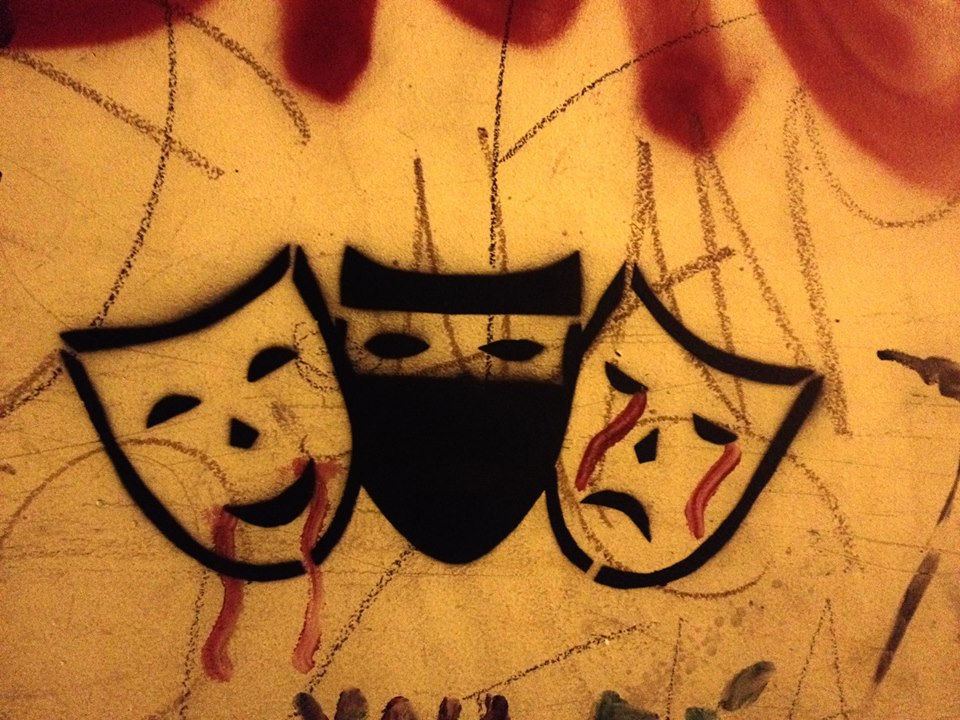
By poet and performer Beatriz Provasi
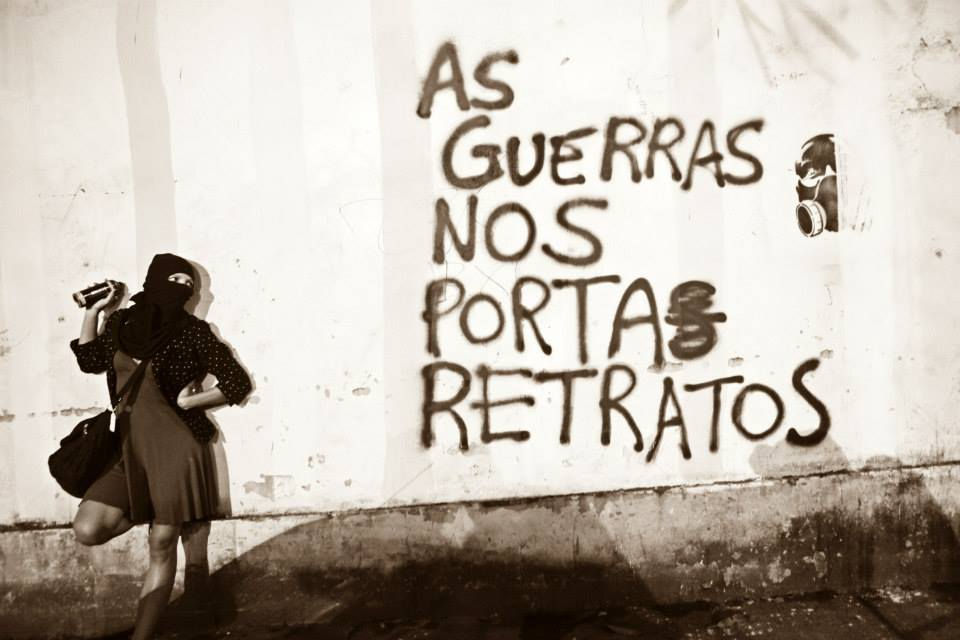
By poet and performer Beatriz Provasi; Photo: Marcelo Valle

By poet and performer Beatriz Provasi

By poet and performer Beatriz Provasi; Photo: Marcelo Valle

By poet and performer Beatriz Provasi; Photo: Marcelo Valle
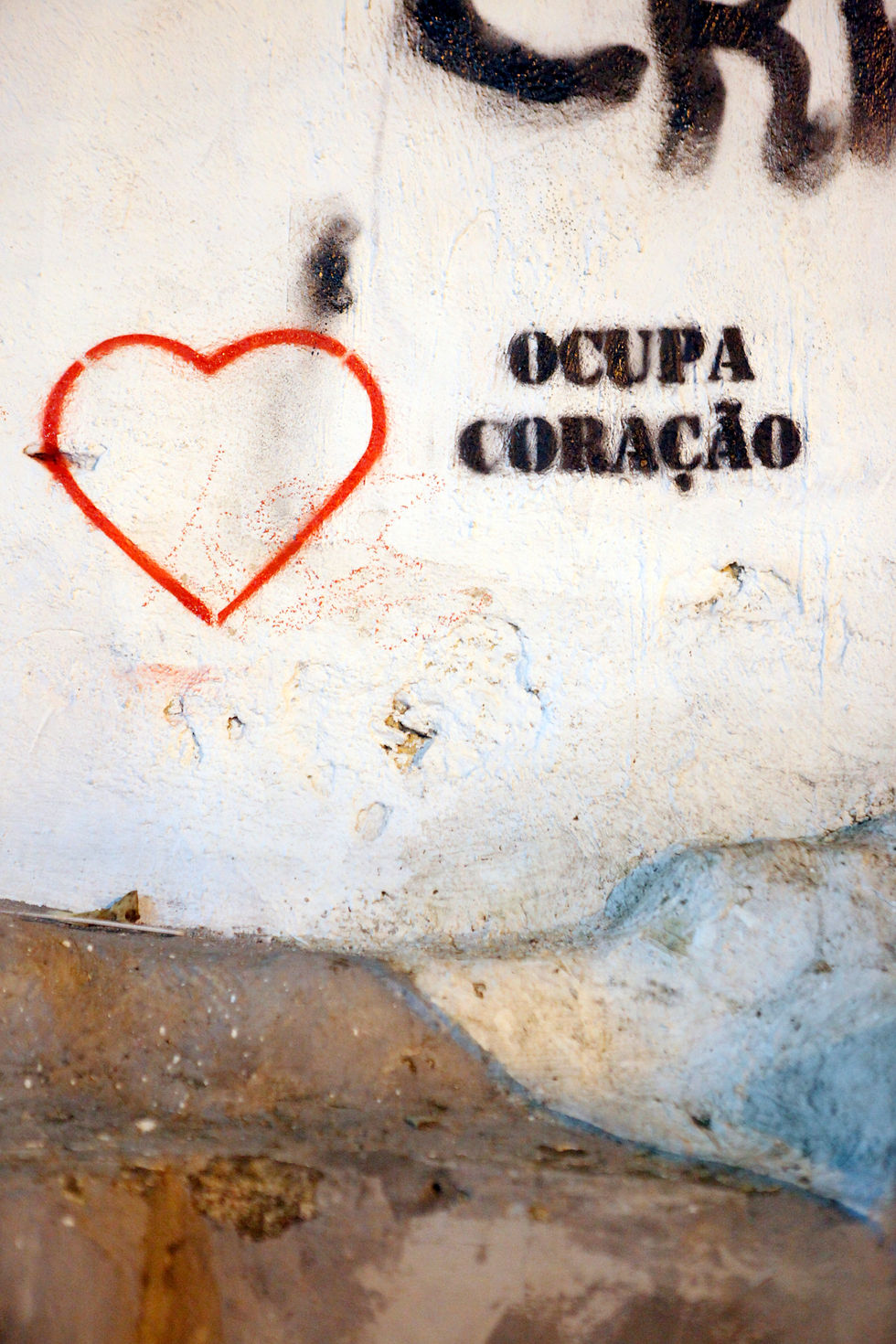
By poet and performer Beatriz Provasi; Photo: Marcelo Valle

By poet and performer Beatriz Provasi; Photo: Marcelo Valle
The Wars in the Picture Frames (2014) encompasses urban interventions and a photo shoot created by poet and performer Beatriz Provasi for her poetry book of the same name.
Graffiti artist Roma collaborated in Provasi's project to create stencils for her Poetic Vandalism and Occupy Heart series. She also created the visual poetry stencil Rio Ri a Rua and the stencil Seja Vândalo, Não Há Heróis (Be a Vandal, There Are No Heroes), paraphrasing Hélio Oiticica.
In addition to decorating city walls with stencils and tagging with the help of Flávia Cortez, Provasi also had the collaboration of photographer Marcelo Valle to produce images for the book.
Guard (BR, 2013)
Solo Performance
Collaboration: Deo Luiz; Photo: Renato Magalhães
Event: Ocupa Câmara Rio's Viradão Político-Cultural in Cinelândia Square
Rio de Janeiro, Brazil

In the performance Guard (2013), performer Beatriz Provasi sets up her tent in Cinelândia Square alongside fellow occupiers while they host a cultural event in the space, just two days after the police cleared the occupy movement Ocupa Câmara Rio. She then installs a traffic sign on an easel with the inscription "The disruption passes, the work remains", borrowed from her performance A Good Poet Is a Dead Poet - The Disruption Passes, the Work Remains (2011).
In the middle of the night, the Municipal Guard arrives, ordering the tents to be taken down. Provasi and her friend Deo Luiz are inside a tent. He exits, but she stays inside a bit longer. She then emerges completely naked, as if she has just woken up. The performer feigns drowsiness and pretends not to understand what the guards are saying. She asks them to wait a moment, explaining that she just woke up and needs a coffee to fully awaken.
After causing surprise and a bit of a standoff, as the guards were unsure how to proceed, wouldn't look directly at her, and asked other activists to mediate, the performer finally gets dressed and takes down the tent.
Poetic Vandalism (BR, 2013-2014)
Solo Performance
Events: CEP 20.000 - Centro de Experimentação Poética (Poetic Experimentation Center) at Espaço Cultural Sérgio Porto, Aldeia Maracanã, and Lona Cultural da Maré; and Bar do Turco in Niterói
Rio de Janeiro, Brazil
In the solo performance Poetic Vandalism (2013-2014), poet and performer Beatriz Provasi presents her vandal poems inspired by the 2013 and 2014 Brazilian demonstrations. She begins performing at poetry events with a black shirt tied around her face in the style of a black bloc.
This performance primarily takes place on the stage of CEP 20.000 - Centro de Experimentação Poética (Poetic Experimentation Center). In 2013, the event not only occupied its traditional venue at Espaço Cultural Sérgio Porto but also held special editions at the indigenous occupation Aldeia Maracanã and the Maré favela's Lona Cultural.
Additionally, there were performances in various other venues, such as Bar do Turco in Niterói. By 2014, this performance evolved into a duo with the integration of Flávia Cortez.
The beginning of this series was also marked by the release of the fanzine Vandalismo Poético (Poetic Vandalism) (2013).
Abertura da Copa (BR, 2013)
Collective Performance
By Arthur Scovino and Beatriz Provasi
Photos: André Luiz Santos Souza and Zmário
Event: Poeformances Exhibition at Galeria ACBEU
Salvador, Brazil
In the performance Abertura da Copa (2013), created by Alex Simões, Arthur Scovino, Beatriz Provasi, and Zmário, and performed by Arthur Scovino and Beatriz Provasi during the opening of the Poeformances exhibition at Galeria ACBEU, the performers position themselves in front of the door leading to the gallery's kitchenette. The entrance is blocked by a green and yellow ribbon. Scovino and Provasi remove their shirts, tie them around their faces, and write "Abertura da Copa" on each other's bodies.

Created by Alex Simões, Arthur Scovino, Beatriz Provasi, and Zmário, and performed by Arthur Scovino and Beatriz Provasi; Photo: André Luiz Santos Souza
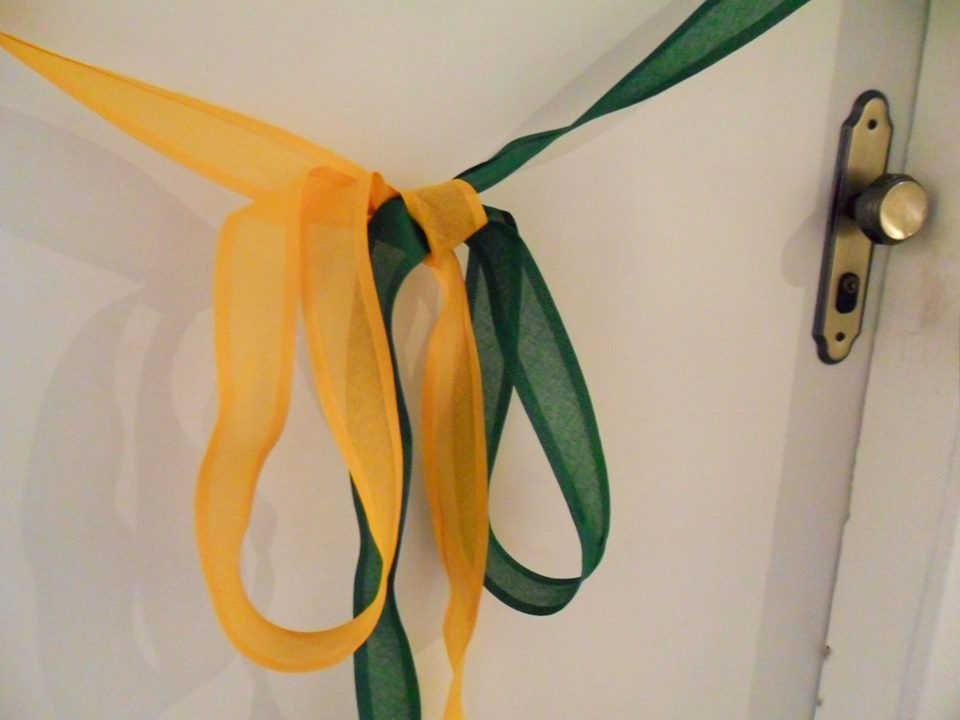
Created by Alex Simões, Arthur Scovino, Beatriz Provasi, and Zmário, and performed by Arthur Scovino and Beatriz Provasi; Photo: Zmário

Created by Alex Simões, Arthur Scovino, Beatriz Provasi, and Zmário, and performed by Arthur Scovino and Beatriz Provasi; Photo: Zmário

Created by Alex Simões, Arthur Scovino, Beatriz Provasi, and Zmário, and performed by Arthur Scovino and Beatriz Provasi; Photo: André Luiz Santos Souza
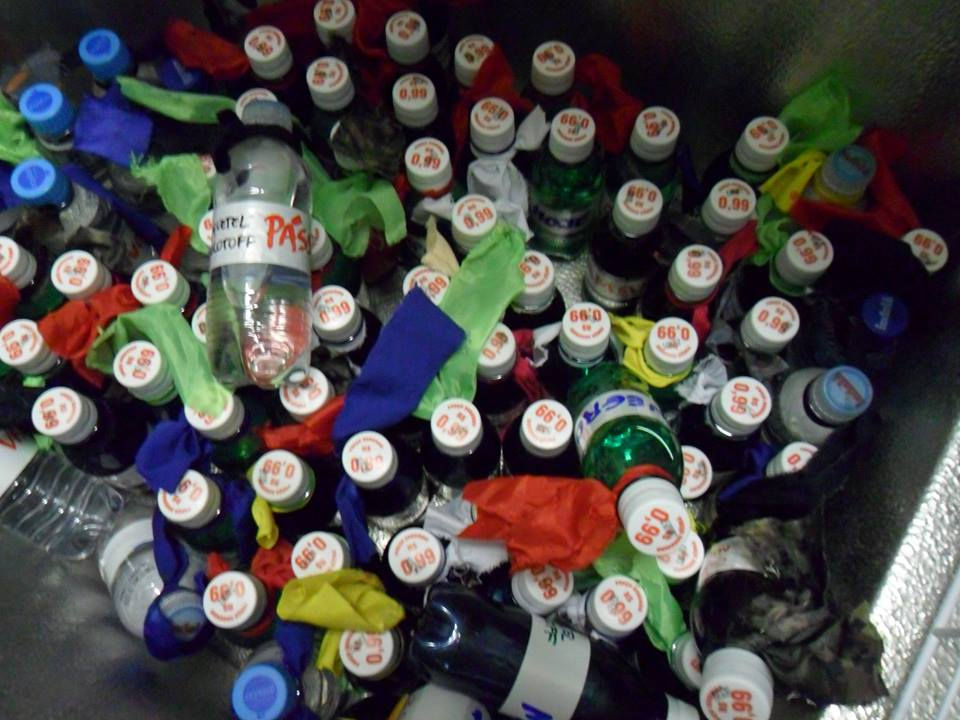
Created by Alex Simões, Arthur Scovino, Beatriz Provasi, and Zmário, and performed by Arthur Scovino and Beatriz Provasi; Photo: Zmário

Created by Alex Simões, Arthur Scovino, Beatriz Provasi, and Zmário, and performed by Arthur Scovino and Beatriz Provasi; Photo: Zmário
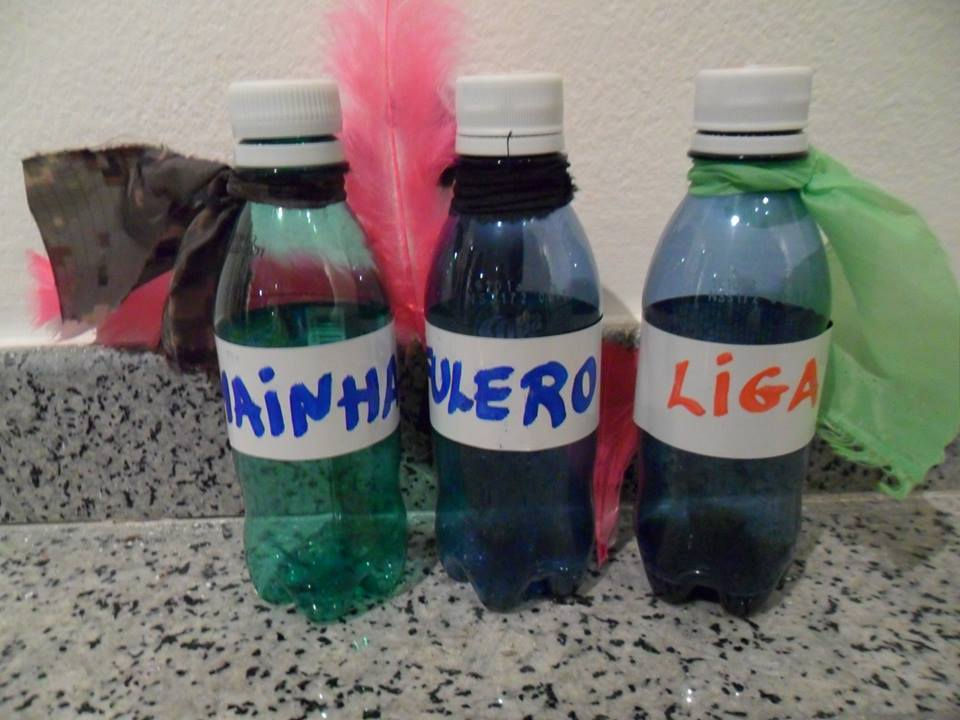
Created by Alex Simões, Arthur Scovino, Beatriz Provasi, and Zmário, and performed by Arthur Scovino and Beatriz Provasi; Photo: Zmário

Created by Alex Simões, Arthur Scovino, Beatriz Provasi, and Zmário, and performed by Arthur Scovino and Beatriz Provasi; Photo: Zmário
The title plays on the double meaning of the word "copa" in Portuguese, which refers both to the World Cup, scheduled to take place in Brazil the following year, and to the room adjacent to the kitchen, with "abertura" meaning opening.
The performers then literally open the "copa" by pulling the ends of the ribbon and opening the door to the space. Inside, the audience finds bottles of soda in the freezer with colorful cloths tied around their necks and labels reading "Molotoff Cocktail", each with different words on them.
Thus, the performance also plays with the word "cocktail", commonly used in the context of a vernissage to refer to an "opening cocktail" at art exhibitions, while also referencing the Molotov cocktails associated with black bloc protests.
At the event, Provasi also launched the first edition of her fanzine Vandalismo Poético (Poetic Vandalism) (2013), displayed with its poems written on a piggy bank intended to collect money from sales.
The Poeformances exhibition explores the relationship between poetry and performance, focusing on elements such as language, the body, and everyday life. It is characterized by its hybrid presentation format, which includes a collective exhibition, visual poetry, video art, spoken poetry, performances, and book launches.
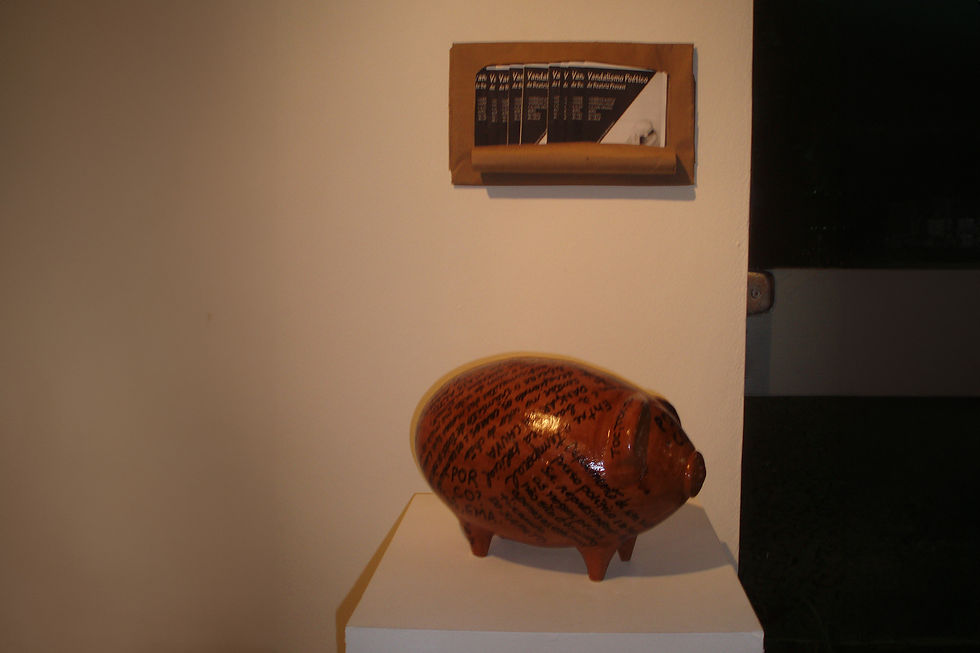
By poet and performer Beatriz Provasi at Poeformances Exhibition; Photo: Beatriz Provasi

By poet and performer Beatriz Provasi at Poeformances Exhibition; Photo: Isabela Lemos

By poet and performer Beatriz Provasi at Poeformances Exhibition; Photo: Beatriz Provasi